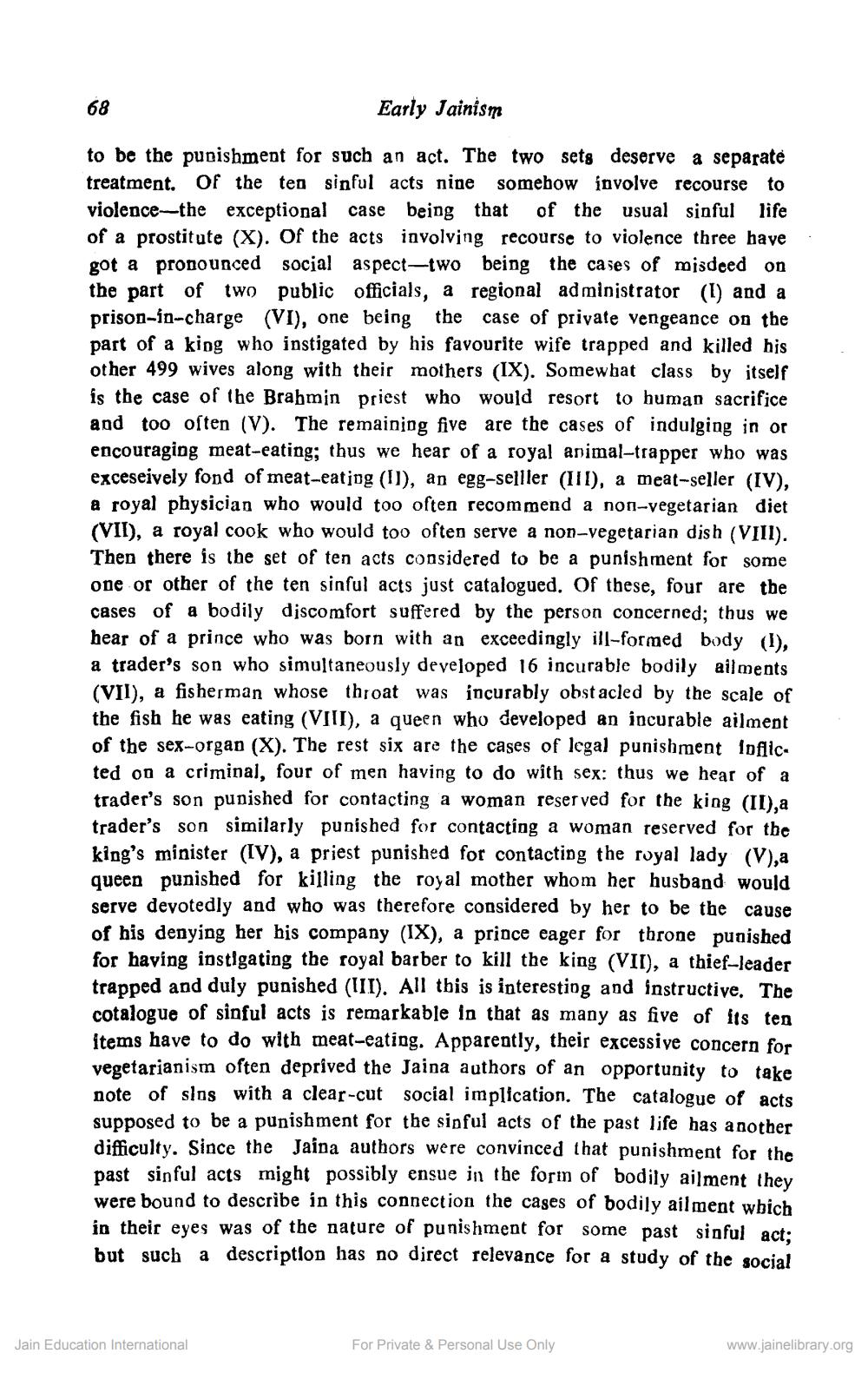________________
68
Early Jainism
to be the punishment for such an act. The two sets deserve a separate treatment. Of the ten sinful acts nine somebow involve recourse to violence--the exceptional case being that of the usual sinful life of a prostitute (X). Of the acts involving recourse to violence three baye. got a pronounced social aspect-two being the cases of misdeed on the part of two public officials, a regional administrator (I) and a prison-in-charge (VI), one being the case of private vengeance on the part of a king who instigated by his favourite wife trapped and killed his other 499 wives along with their mothers (IX). Somewhat class by itself is the case of the Brahmin priest who would resort to human sacrifice
od too often (V). The remaining five are the cases of indulging in or encouraging meat-eating; thus we hear of a royal animal-trapper who was exceseively fond of meat-eating (I), an egg-selller (111), a meat-seller (IV). a royal physician who would too often recommend a non-vegetarian diet (VII), a royal cook who would too often serve a non-vegetarian dish (VIII). Then there is the set of ten acts considered to be a punishment for some one or other of the ten sinful acts just catalogued. Of these, four are the cases of a bodily discomfort suffered by the person concerned; thus we hear of a prince who was born with an exceedingly ill-formed body (1), a trader's son who simultaneously developed 16 incurable bodily ailments (VII), a fisherman whose throat was incurably obstacled by the scale of the fish he was eating (VIII), a queen who developed an incurable ailment of the sex-organ (X). The rest six are the cases of legal punishment ipflic. ted on a criminal, four of men having to do with sex: thus we hear of a trader's son punished for contacting a woman reserved for the king (II),a trader's son similarly punished for contacting a woman reserved for the king's minister (IV), a priest punished for contacting the royal lady (V),a queen punished for killing the royal mother whom her husband would serve devotedly and who was therefore considered by her to be the cause of his denying her his company (IX), a prince eager for throne punished for having instigating the royal barber to kill the king (VII), a thief-leader trapped and duly punished (III). All this is interesting and instructive. The cotalogue of sinful acts is remarkable in that as many as five of its ten Items have to do with meat-eating. Apparently, their excessive concern for vegetarianism often deprived the Jaina authors of an opportunity to take note of sins with a clear-cut social implication. The catalogue of acts supposed to be a punishment for the sinful acts of the past life has another difficulty. Since the Jaina authors were convinced that punishment for the past sinful acts might possibly ensue in the form of bodily ailment they were bound to describe in this connection the cages of bodily ailment wbich in their eyes was of the nature of punishment for some past sinful act: but such a description has no direct relevance for a study of the social
Jain Education International
For Private & Personal Use Only
www.jainelibrary.org




